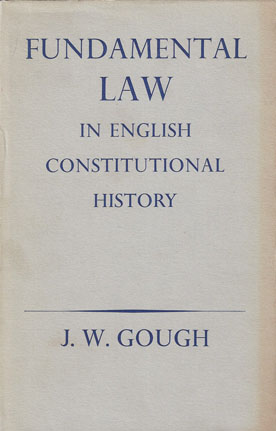
Out of Print
Dicey called the legal sovereignty of Parliament 'the dominant characteristic of our political institutions'. But in the seventeenth and eighteenth centuries 'the fundamental laws', or 'fundamental rights', were constantly invoked as checks on any claims, whether of the legislature or of the king, to exercise arbitrary power.
Some American historians have seen in these appeals to fundamental law an anticipation of the American constitution, but English writers have generally emphasized the lack of any precise meaning in the phrase. In this book which should interest and instruct historians and constitutional lawyers alike, the author analyses the various appearances of fundamental law in our history.
This, he suggests, is essential to a proper understanding both of the past and of its largely unforeseen and unintended outcome.